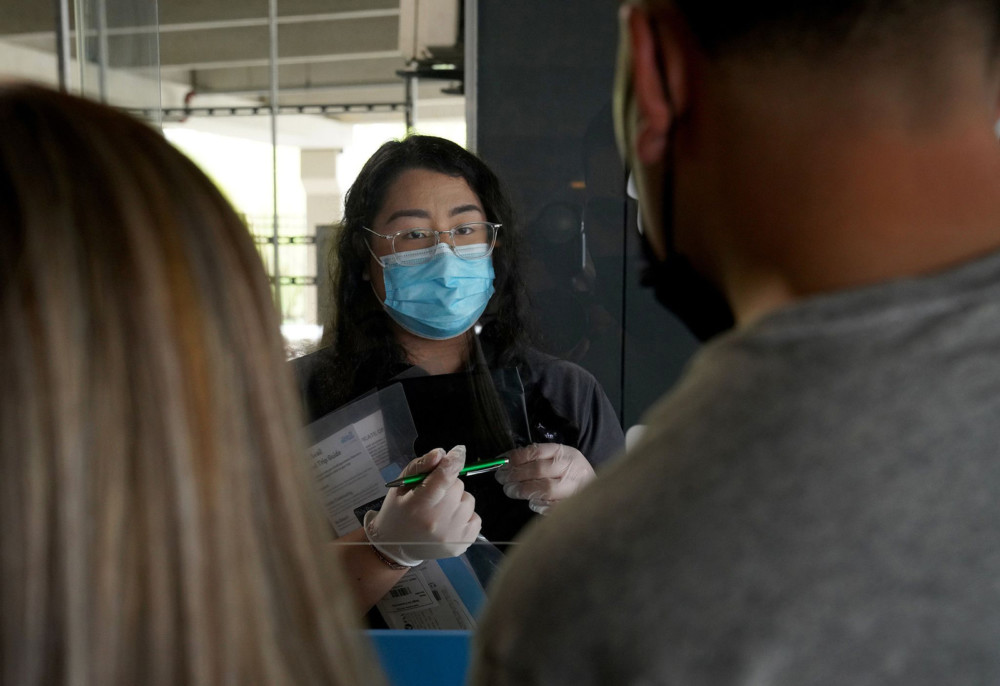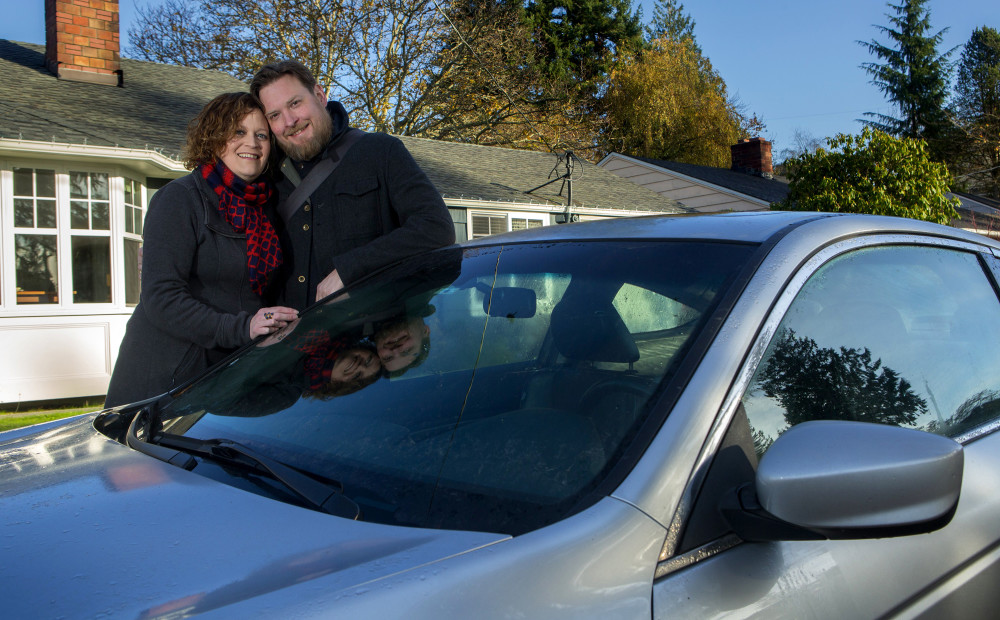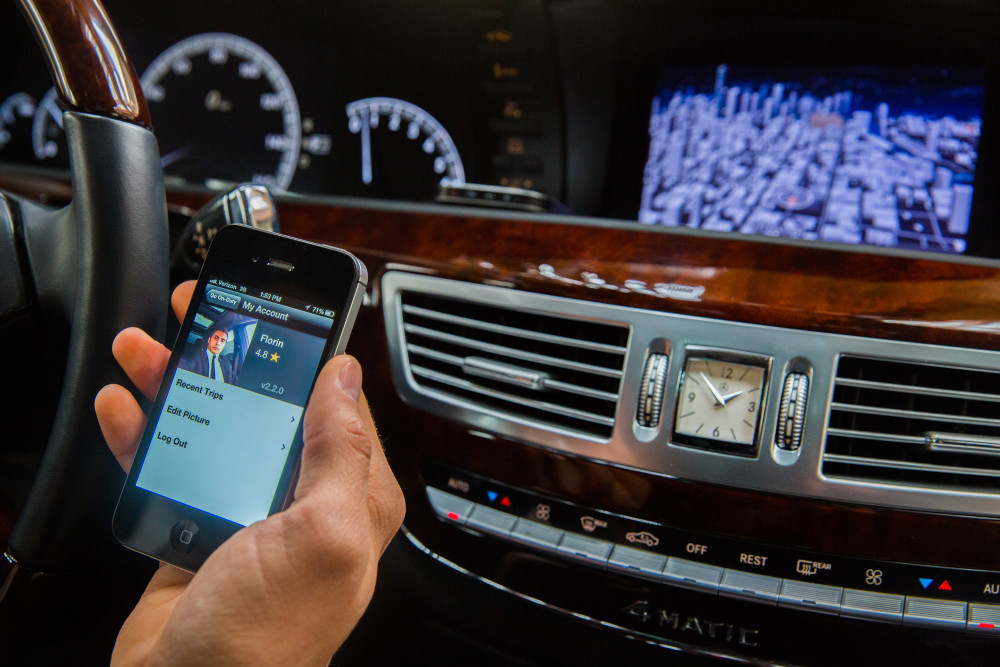Lauren Zumbach
Chicago Tribune
WWR Article Summary (tl;dr) As Lauren Zumbach reports, car-sharing companies that let people rent from individuals rather than companies like Hertz and Avis are growing in popularity. Many drivers like the option to rent by the hour so they can book cars for simple errands or short trips.
Chicago
A Memorial Day trip to hike and bike at Mississippi Palisades State Park seemed like an easy pandemic getaway — until Autumn Wolfer tried to book a rental car to drive there.
Including insurance, some rental car companies wanted as much as $900, she said.
So Wolfer, 43, of Chicago’s Ravenswood neighborhood, checked out Turo, a car-sharing company that lets people rent from individuals rather than companies like Hertz and Avis. Renting a 2020 Chevrolet Equinox from someone in Wicker Park cost just $250, she said.
“We’re paying $50 for the campsite. Paying $900 for the car just seemed kind of silly,” she said.
Rental car companies that sold hundreds of thousands of vehicles when the COVID-19 pandemic kept people home are now struggling to bring in enough new cars, leading to higher-than-usual prices and, in some destinations, limited options. For travelers, that means planning ahead or considering alternative options, from renting a stranger’s vehicle through a car-sharing service to driving a U-Haul.
“I think if you’re desperate enough, you’re going to try everything,” said Neil Abrams, president of car rental consulting firm Abrams Consulting Group.
When the pandemic hit and travelers canceled trips, rental car companies rushed to get rid of idle vehicles. Hertz, which filed for Chapter 11 bankruptcy protection last May, got rid of about 198,000 vehicles in the second half of 2020, according to the company’s annual report. Avis Budget Group said its fleet was about 31% smaller at the end of 2020 than the year before.
Just as travel started to bounce back this spring, semiconductor shortages affecting car manufacturers made it difficult for rental agencies to bring in enough cars to meet the new demand.
Avis Budget Group is getting new cars every day and can keep existing cars longer since they racked up fewer miles during the pandemic, but semiconductor shortages are having an impact, CEO Joseph Ferraro said during an earnings call Wednesday.
In the meantime, price increases have been “extraordinary,” Abrams said.
The average price for a four-day rental jumped from $260 in February to $321 in March, and hit $388 during the final week of April, according to data from travel search tool Hopper.
While the shortage is being felt nationwide, certain destinations have seen especially large spikes.
Bozeman, Montana, was the most expensive city to rent a car in during the final week of April, with an average price of $259 per day, according to travel search website Kayak. That’s up 278% compared with 2019.
Hawaii, which has a tougher time bringing in new cars, has also seen steep increases. Four of the 10 most expensive cities for car rentals were in Hawaii, all of which saw prices more than double compared with 2019, according to Kayak.
In Hawaii, at least some tourists appear to have turned to U-Haul pickup trucks and cargo vans. In April, Kaleo Alau, president of the U-Haul Co. of Hawaii, said there had been a “considerable uptick” in visitors renting smaller vehicles for a few days to a week.
Other travelers are trying out companies that let users rent someone’s personal car.
Unlike a traditional rental car agency, Turo doesn’t have a central lot at the airport, so travelers either need to be able to get to the car owner’s location or rent from someone willing to bring the car to them. Owners are required to clean and disinfect vehicles before each trip, focusing on frequently touched spots like the steering wheel, door handles and fuel cap, according to Turo’s website.
On Turo, car owners set their prices and how many miles are included in the daily rate. As at traditional rental car companies, insurance costs extra.
Drivers with auto insurance should check with their provider before renting, but with most major auto insurance providers, liability insurance will cover a driver regardless of where they rent, said Laura Adams, an insurance expert at AutoInsurance.org. Drivers should check whether they have collision insurance and whether it covers rental cars or only their personal car, she said.
However, a car owner who rents out their vehicle through a car-sharing service can’t rely on personal auto insurance, said Loretta Worters, spokesperson for the Insurance Information Institute. Car-sharing companies provide insurance options for owners.
Adams also cautioned against relying on coverage provided by a credit card when renting a vehicle, which can be more limited. Turo’s website warns users credit card companies are unlikely to cover peer-to-peer rentals.
Renting to strangers brings risks. Natanya Abraham, 28, of the Near West Side, started renting out her personal car on Turo in November to earn extra income when she wasn’t using it and has since added a second vehicle she bought specifically to rent.
A couple of customers have missed return deadlines and one brought the car back with a damaged rear bumper. Abraham had agreed to let the customer pay her directly to keep the car for extra time rather than paying through Turo, so Turo didn’t cover the repair.
But the income, which requires relatively little hands-on management, is worth it, Abraham said. She estimates she earned $2,300 in April, nearly double a typical month.
“I absolutely see myself doing this long-term,” she said.
According to a company survey, 73% of people who list at least three cars on Turo and treat it as a small business say they have seen an increase in bookings since the start of 2021, and 70% plan to purchase another car to list on the app within a year.
Other car-sharing companies said they think the tight supply of rental cars is giving their business a boost.
Avail, which has a pickup lot a shuttle ride away from O’Hare International Airport, said bookings have grown roughly 150% so far this year compared with the same period last year. Some of that is due to launching in new cities over the past year and travel recovering. But Business Operations Director Alex David said he thinks the “massive lack of cars” in the rental industry is helping. Vehicle listings were also up 150% as of March.
Avail is designed to feel more like a traditional car rental than other car-sharing services. Renters pick up cars from airport lots where cars are inspected and cleaned before being used, the company said. To keep prices and fees consistent across cars, Avail, not the car owner, sets prices, David said.
The advertised rates include liability and physical damage insurance from Allstate, which is an investor in Avail. Drivers found at fault in an accident have a $500 deductible.
Getaround, another car-sharing company, said it has seen a significant increase in demand in recent months. Most people using Getaround, which rents by the hour, book cars for errands or short trips, so car rental shortages are just one factor driving demand, Pat Notti, Getaround’s vice president of marketplace and operations, said in a statement. Still, recent growth has been particularly strong among travelers, and business in Florida has doubled since last year, Notti said.
At Getaround, the quoted prices include liability, collision and comprehensive insurance coverage, but renters are responsible for up to $3,000 in damages unless they buy a protection plan that reduces that fee.
Getaround cars have a device installed that lets users unlock the car, with keys inside, for a contact-free pickup. As at Turo, renters need to be able to get to the vehicle’s location.
Car-sharing services account for a “tiny fraction” of the overall rental market, but high prices and limited availability at traditional agencies could push more consumers to give them a try, Abrams said.
Still, those companies may also raise prices and see more limited availability, particularly in destinations where rental cars are toughest to find, said Jonathan Weinberg, CEO of car rental website AutoSlash.
Both Avail and Getaround said they factor expected demand into prices, but Avail has imposed price caps of $125 or $150 per day, depending on the type of vehicle, David said. To build its pool of cars, the company is also offering a $100 incentive to people who list their vehicle on Avail for the first time.
Regardless of where travelers rent, it makes sense to plan ahead this year, Weinberg said. It’s also worth checking off-airport rental locations or rental agencies at a nearby airport in case the price difference is large enough to cover the cost of a taxi or Uber, Weinberg said.
“What we’re seeing today is really just a precursor to what we’re going to see this summer,” he said.
Distributed by Tribune Content Agency, LLC.

















































































































































































































































































































































































